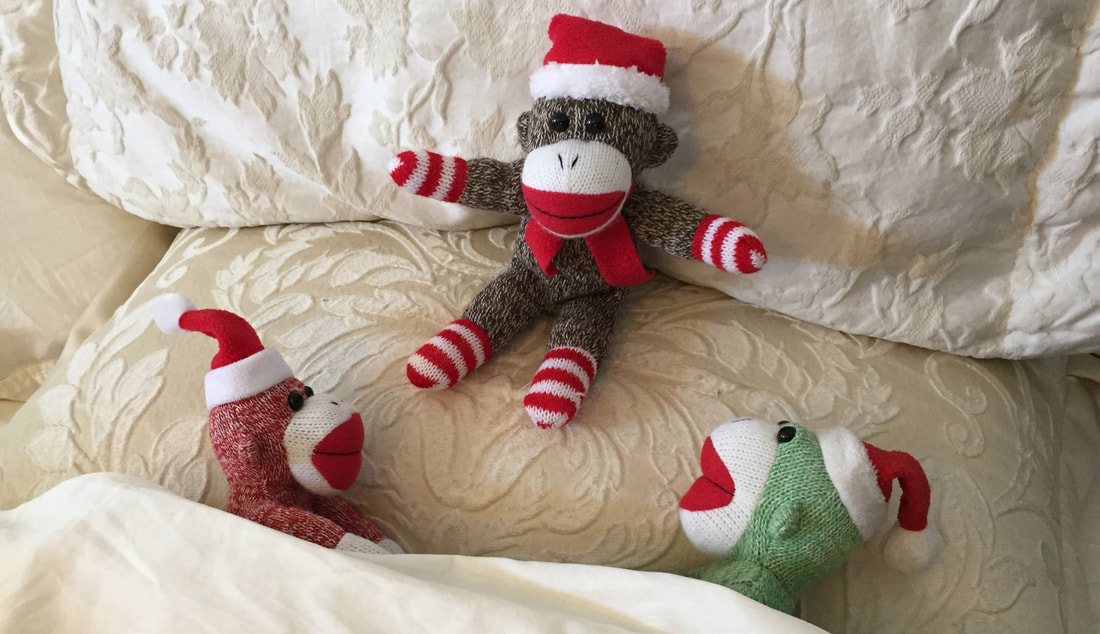|
Ask any fiction writer what the most common question they get is and you’ll likely hear: “Where* do you get your ideas**?” [*Taking the question literally, the plausible answers are either (1) inside my head (i.e. from my imagination), (2) outside my head (i.e. from the world around me), or (3) a combination of 1 & 2 (i.e. take some event from some place and sometime in the world and re-imagine it into something else). #3 is—by far—the most common.] [**FYI, writers speak of this question amongst themselves the way musicians talk about requests to play Mustang Sally or Free Bird. Just sayin…] But the question behind the question is likely something more along the lines of: How do you develop the seed of an idea into a story? This question is actually interesting—to writers as well as readers—because while the former has three answers (inside/outside/both), the latter has as many answers as there are writers. So I’m not suggesting that what works for one writer will absolutely work for another. We’re all different. But if nothing else, looking at someone else’s process can help jumpstart your own, different though it may be. It might sound funny, but spinning a bedtime story completely on the fly—no notes, no pre-plotting, no outline—might be one of the best storytelling lessons we can have, for a few different reasons. When our boys were little we would read them bedtime stories, pretty much from birth. Somewhere in there—they were maybe two and four—I opted to tell them a story instead of reading them one. (Extemporize, not re-tell a classic.) For some reason—probably because I could be as wild and goofy and stupid about it as I wanted—they enjoyed it. So I got roped into doing it on the regular. Not every night, but perhaps three or four times a week. Maybe someone else could world-build a totally unique setting and character-set every night (after an 8-to-12 hr. workday) but not me... I quickly learned the best way for me was to have several serialized stories going at once, in episodic fashion, and let them pick one each night and spin a little bit more of it. No plotting or outlining allowed, because you didn’t even know which one it was going to be until you were lying on the floor with the lights out and a little voice would say, “Could we hear Cousin Crow, Dad?” And you’d say, “Really? Are you sure? I don’t think so…” And they’d start yelling, “Cousin Crow!!! Cousin Crow!!! Cousin Crow!!!” and you’d be off to the races, talking about whatever trouble that crazy bird was getting into next… This went on for six or seven years. A couple hundred stories a year. Easily a thousand or so by the time we moved on to “Novels at Night.” Stories where the goal was to entertain them and make them laugh, and maybe even make them think about things in a new way. These stories certainly weren’t War and Peace, believe me. Mostly goofy stories about various people and creatures having adventures and getting into trouble*. [*Ex: There was a young dude who worked in a science lab—I named him “Wilbur the Science Guy” in a fit of stunning creativity—who was smart but absent-minded. He really liked to eat but he really didn’t like to waste time so he hot-rodded the lab’s microwave oven so it would cook a frozen burrito in two seconds instead of two minutes, which was awesome right up until he forgot and put in a burrito and set it for two minutes. The massive over-nuking of the burrito resulted not only in an explosion that plastered the lab’s walls with stinky, slimy beans and cheese, but also created a time warp that sent Wilbur back to medieval days, where further adventures featured him trying to explain science to a stupid and pompous king who didn’t believe in science. This was twenty years ago, btw…] So, a few benefits of this ad hoc storytelling process… 1. It encourages us to exercise our “going with our gut” story development muscles. (AKA “organic” writing.) Because there’s no time for over-thinking. The main driver is simply, “What interesting thing could happen right now?” and then riffing on that. 2. You get instant feedback from your “readers.” If a couple of monkey boys are bored by your story, you’ll hear about it. Instantly. And loudly. (OTOH, if they find something funny, you’ll know that right away, too.) 3. You tend to consider—and play to—your audience. Not that this should always be the top priority when wordsmithing, but when writing for a specific age group—whether picture book, chapter book, middle grade, or YA—it’s certainly helpful to know who’s reading, and what they may likely be interested in. (Bottom line—if you don’t interest your readers, they won’t want to read your book. It's that simple, but sometimes we forget.) 4. You learn to create—and abandon—ideas quickly. Like, at the speed of speech if not faster. If something isn’t working, you quickly pivot and try something else. Sometimes you’ll think of an idea and toss it before it even comes out of your mouth. This translates well to doing actual plotting on, like, an actual book. Again, none of these stories were the Great American Novel. Not by a longshot. But they taught me some valuable lessons. Lessons I still use today. Lessons we could use tomorrow. Because after all, isn’t the ultimate goal the same—to keep the reader tuned in and engaged in your story, no matter what? Happy spinning!
0 Comments
Leave a Reply. |
The Craft and Business of
|

 RSS Feed
RSS Feed